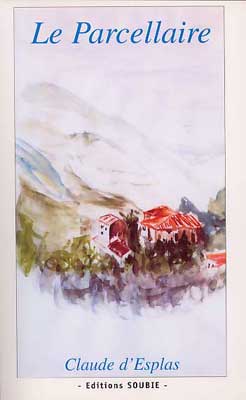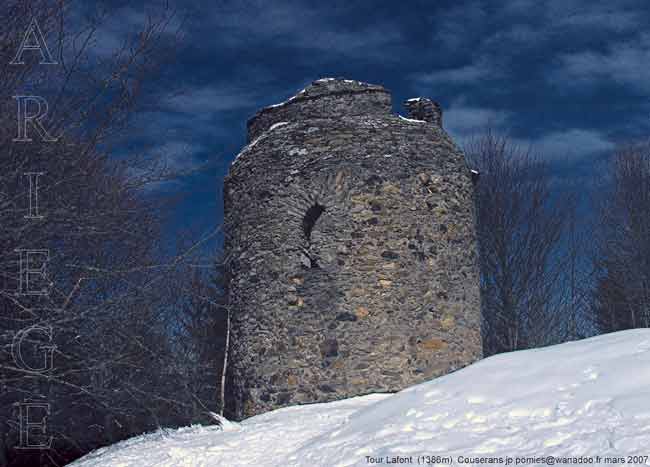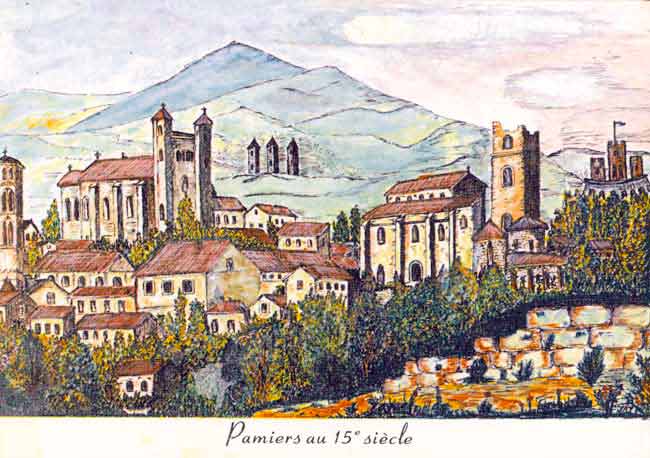|
|
 There we are, it is ready, it is signed, well nearly. It still has to pass under the Prefect’s nose and the official papers will be sent to me : just as well make the most of it straight away ; but already the REFAS intervenes for the commune des Plas is rather remarkable in terms of agricultural continuance if one compares it with all the communes of the mountain zone. Its land structures are less run down, the slopes less sloped, the quality of its soils putting the brakes on fern invasion, which is the lot of more acidy terrains. Nonetheless the agriculturers move away into town and the installation of neo-peasants occurs less frequently than the cessation of business by farms, such installation being, of course, the resultant of the efforts of the offices of the REFAS (Gascogne/Haut-Languedoc). The hamlet planted Oak, for example, which concerns us, does not count more than two permanent female inhabitants nowadays, Mme M. and her daughter, very diminished agriculturesses since they only cultivate a few hundred square meters and have already sold all their cattle. Secondary residents, in exchange, come regularly to this place to be back in a land which is theirs or has become such. It speaks for the importance of installing in viable conditions couples of young agriculturers (and their lepsicrottes) who will ensure the maintenance of the landscape and the guarantee for the owners-lessors of a small complementary revenu (100 kilos of good beef, that is around 560 F per annum) if not the survival of the school of des Plas, recently reopened. This explains also why the REFAS rather than attribute these lands to pseudo-agriculturers from some Borough-Paréage, in the plain, people who would have simply fenced in sheep there, has chosen to proceed to a permanent installation of Neos, the same committing themselves to exploiting personally, during fifteen years at least, on a fenced in surface of about twenty hectares, their herd of dairy lamas and beef zebus.
The neo-agriculturer, Nick-Gascogne, is thought to come from the Languedoc where he is supposed to have become illustrious on the occasion of the Revolution of the Rutabagas by some excess of regionalist enthusiasm, while the neo-agriculturess, Nick-Languedoc, an authentic northerner, always according to jealous rumour, lived hirsute in the woods of Ferobach (like the Savage Woman of Vicdessos) in the midst of fourteen Hippies in want of a muse, poor people in rags who, chased from Afghanistan, chased from Nepal, chased from the Causses or from the Cevennes now find themselves at the end of the world where they manufacture mountain goat cheese. So this explains why the spies of the REFAS intervened telephonically and cantankerously, to accuse me of being ignorant of the lot of the country’s agriculturers, and of understanding nothing about the destiny of these herds of bovidae, a large family, certainly, but certain branches of which are thought to be on the way to total disappearance if one believes Mrs Wringthebeak, the teacher of geography in the lower classes of a college in the area, who for one claims that only six hundred specimens still exist in the region of Castillon and of Oust and that it is high time to photograph them and to reproduce them, in the name of the new ecological necessities, just as it is urgent to cultivate the image of these mountain shepherds, these pyrenean “pastous”, shrivelled up under their black berets, leaning on their long staffs and who, in the shelter of an immense blue umbrella, count and recount their meagre retirement pay.
From Appaméa, my base camp, (altitude 272 m) as far as planted Oak (701 m, at the fountain) all roads are permitted via Neighbour-Borough (altitude 400 m), an agglomeration implanted under the roman occupation and whose streets - a souvenir of the medieval bastides - cut at right angles. The sky is blue over the Haut-Languedoc and the Gascogne, the line at the horizon green, the car turquoise blue. The land does not budge and the pervading breeze is so gentle that it does not manage to stir the immense aquarium of transparent air whose surface is lightly touched by the summits of the fir-trees, high up in the area of the Tour Lafont.
Claude d’Esplas (Le Parcellaire) Translation : Dagmar Coward Kuschke (Tübingen) |
ADG-Paris © 2005-2024 - Sitemap






